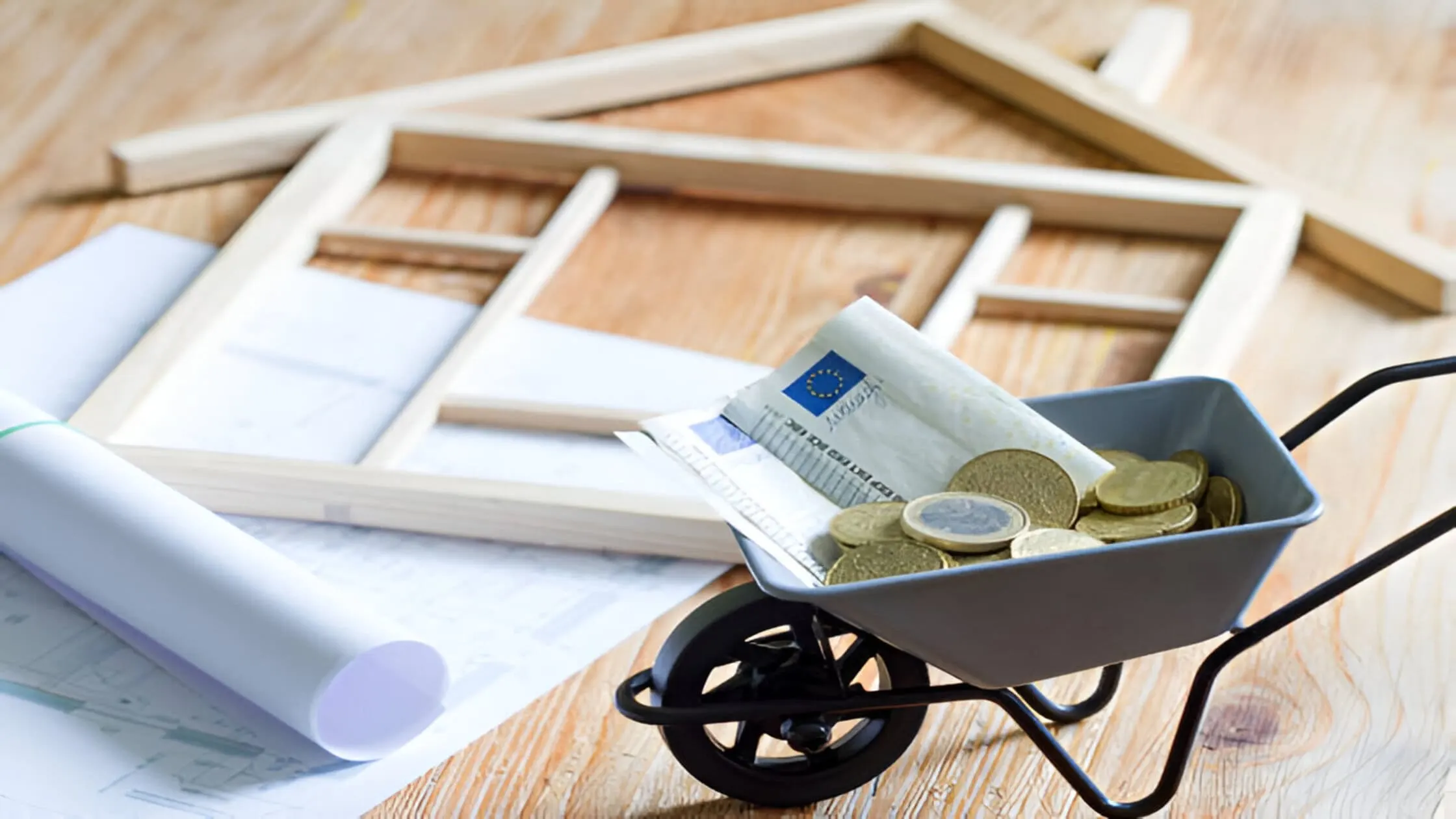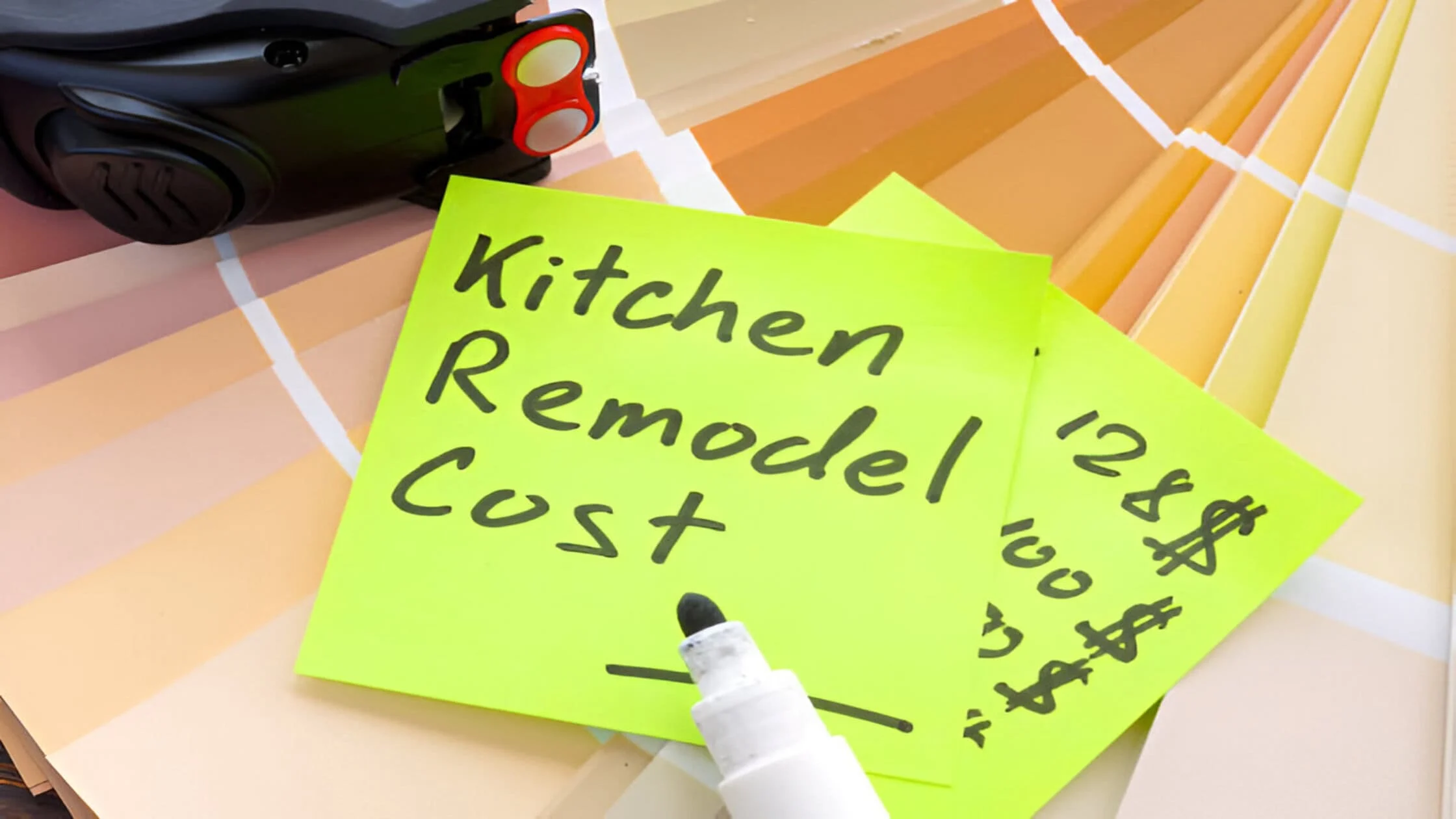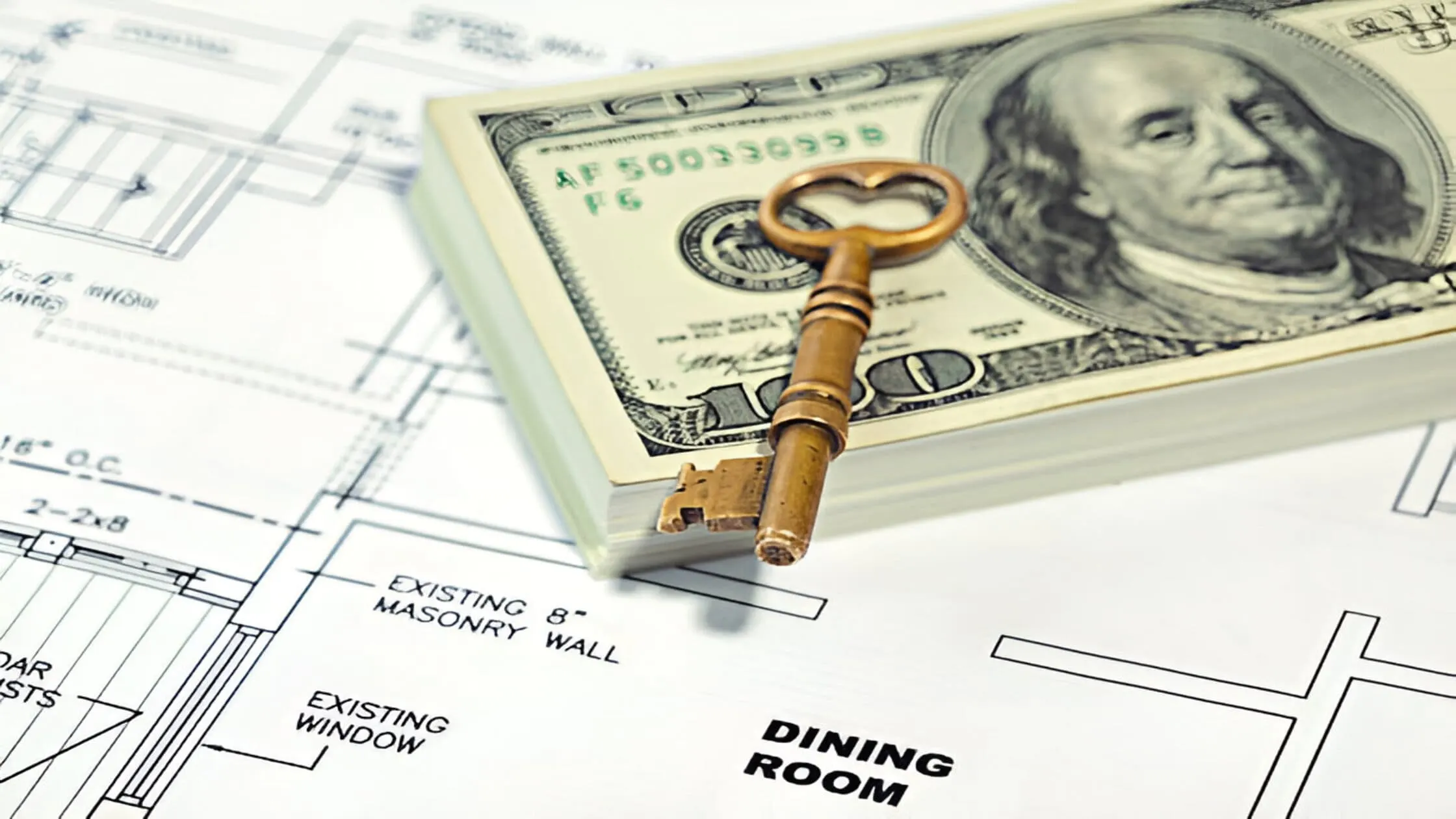Can I deduct remodeling expenses for a rental property? This is a question every landlord asks. Knowing the answer can save you thousands on your taxes. At LeaseRunner, we help landlords understand the rules and stay compliant.
Clear tax knowledge is key to running a profitable rental business. This guide will show you what you can deduct, what you can't, and how to report everything correctly. We'll cover repairs, improvements, and the rental property deductions checklist you need for 2025.

Key Takeaway Table: Deductible vs. Non-Deductible Remodeling Expenses
What the IRS Says About Remodeling and Rental Deductions?
The Internal Revenue Service (IRS) has regulations for reporting rental property expenses. Learning about them is crucial in order to take full advantage of your deductions.
What Counts as a Deductible Rental Property Expense?
The IRS says you can deduct expenses that are ordinary and necessary for your rental business. An ordinary expense is common in your industry. A necessary expense is one that is helpful and appropriate. For example, paying for advertising is ordinary and necessary. These costs are usually deducted in the year you pay them.
Capital Improvements vs Routine Repairs
This is the most important distinction. Repairs keep your property in good working condition. They are deducted in the same year. Capital improvements make your property better, add value, or extend its life. These costs are depreciated over several years.
For example, painting a room is a repair. Replacing all the windows is a capital improvement. Knowing how much you can write off for repairs on rental property depends on this difference.
What Does “Placed in Service" Mean for Deductions?
A cost is deductible for tax purposes when the property has been “placed in service." That is, when the property is available and ready to rent.
You may begin deducting even when you are not yet renting. If you purchase a rental in May and it takes you until June 1 to get it ready to receive tenants, you begin deducting costs on June 1 and thereafter.
Can You Deduct Remodeling Expenses for Rental Property?
Yes, but the process is what matters. The IRS does consider remodeling to be a capital improvement, rather than a repair. Therefore, rental property tax-deductible renovation costs have to be depreciated over time and not deducted entirely.

Are Remodeling Costs Deductible?
Yes, rental property renovation tax-deductible costs are deducted through depreciation. A renovation enhances your property, so it is a capital cost. Say, if you spent $20,000 on a kitchen renovation, you don't deduct $20,000 this year.
Rather, you spread out some of that cost each year for 27.5 years (the typical for residential rentals). This allows you to recapture the cost of the remodel over the life of the property. Then, can you deduct renovations on a rental property? Yes, but by this particular method.
Can You Deduct Remodeling If the Property Is Vacant?
Yes, you are entitled to claim expenses when a rental property is unoccupied during renovation. Provided the property will be rented out, your expenses remain deductible. For instance, when you purchase a property and take three months to renovate it before renting it out, the cost of renovating is tax-deductible.
Likewise, can you deduct rent expenses when you receive no rent income? Yes. Provided that the property remains available to be rented, you can deduct recurring expenses such as mortgage interest and property taxes during vacancy.
Can You Deduct Your Own Labor?
No, you can't deduct your own labor on rental property. You cannot deduct the value of your time or effort, states the IRS. You can deduct the materials you purchase for the job.
For instance, if you paint the property yourself, you cannot deduct your labor hours. However, you can deduct paint, brushes, and supplies. If you hired a professional painter, their work is fully deductible.
6 Other Common Rental Property Tax Deductions

Landlords benefit from numerous tax deductions other than remodeling. Below is a summary rental property deductions list with examples of each deduction to optimize your savings and stay within current guidelines.
1. Mortgage interest
You may deduct interest on a mortgage on a rental property. Suppose you owe $200,000 on a mortgage and pay $900 per month in interest. You may deduct $10,800 annually. This is normally the largest deduction for rental owners and one of the normal write-off limits for rentals.
2. Insurance
You can claim in full the annual premiums paid for property insurance, landlord liability policies, or flood insurance premiums. Suppose your landlord policy is $1,500 and your flood insurance is $500. You may claim the entire $2,000.
3. Property taxes
All state and local property taxes paid on your rental are deductible. Always keep records of your tax bills. For example, if you pay $2,700 in annual property taxes, you can deduct this sum even when the rental property is vacant while renovating.
4. Advertising, legal, and management fees
Internet advertising for your unit (advertising your unit on the web), lawyer charges for preparing a lease, and charges to a property manager all qualify. A $150 web advert, $400 lawyer charge, and $1,200 yearly management charge, for example, can all be taken as rental property deductions.
5. Utilities are paid by the landlord
If you cover water, gas, electricity, or trash for tenants, these bills are deductible. If your water costs $80 per month, that's $960 yearly you can deduct, even if you have no rental income temporarily.
6. Maintenance and supplies
Regular repair costs, including cleaning, yard care, and incidentals (like light bulbs and smoke detector batteries), are deductions. Your $300 spending on landscaping and your $60 cost for batteries are deductible in the same year.
That's why it is important to know how much you can deduct for rental property repairs in your end-of-year planning. Keep track of your deductions meticulously to remain IRS-compliant and claim full credit for qualifying expenses.
Non-Deductible Rental Expenses Landlords Should Avoid Claiming

Not all expenses are deductible. Non-deductible expenses can lead to an audit and a penalty. There are rental property write-off limits to be aware of.
1. Personal use or mixed-use renovations
If you dedicate part of your property to personal use, you can only deduct the rental value of your expenses. For example, if you live in half of a duplex and rent out the other, you can only deduct 50% of the cost of a new roof. This is a crucial rental property written-off restriction.
2. Travel for personal reasons
You can deduct travel costs to your rental property for business reasons. However, you cannot deduct travel if the purpose is personal. For example, driving to your rental to check on a repair is deductible. Driving there to have a family picnic is not.
3. Fines, penalties, or uncollected rent
You cannot deduct government fines or penalties, such as for code violations. You also cannot deduct uncollected rent you were owed but never received. You can only deduct expenses you actually paid.
4. Security deposits (unless retained for damages)
Security deposits are not income and are not deductible when you receive them. You only claim a security deposit as income if you keep it to cover damages. This is related to the question of whether pet deposits are refundable, as the same rules generally apply.
How to Track and Report Remodeling Expenses Properly?
Good records are essential for tax time. Proper tracking ensures you get every deduction you deserve and can prove it if you are audited.

Best Practices for Recordkeeping
Good records make tax time easier and can help you resolve tenant disputes or legal issues if they come up. Some best practices include:
- Keep detailed records of all income and expenses.
- Use a separate bank account for your rental business.
- Save all receipts, invoices, and bank statements.
- For each expense, record the date, amount, and purpose. Digital tools can make this easier.
How to Report Deductions on Your Tax Return?
You report rental income and expenses on Schedule E (Form 1040). Repairs are listed as expenses. Capital improvements are reported on Form 4562, where you calculate depreciation. If you have multiple tenants on a lease, your income reporting is straightforward, but your expense tracking remains the same.
Tools to Help You Track Remodeling Costs
Software like Stessa or Landlord Studio can help you track expenses. You can also use a simple spreadsheet. We at LeaseRunner provide tools to help manage your rental business, making tax time simpler. The key is to be consistent and organized throughout the year.
The 2025 Tax Law Update: What’s Changed for Landlords?
Routine repair costs, including cleaning, lawn care, and miscellaneous (like light bulbs and smoke alarm batteries), are allowable for tax deductions by the IRS. For example, if you spent $300 on landscaping and $60 on replacing batteries this year, both are considered allowable deductions on your rental income tax return.
That’s why year-end planning is key. Knowing what counts as a deductible repair helps you avoid leaving money on the table. Maintain proper receipts for all your deductions to remain IRS-compliant and earn full credit on allowable expenses.
Quick Checklist: Remodeling Tax Deductions for Landlords

Use this rental property deductions list to see what renovation costs you can claim on tax, which you will have to depreciate over time, and which you cannot claim at all. Knowing these rules helps landlords to get the most out of it and remain compliant.
Depreciable Items
Certain improvements are worth your rental and need to be depreciated over several years. For example:
- Replacing the roof or installing a new one is an excellent example of a rental property renovation tax-deductible cost, amortized over 27.5 years.
- Large kitchen remodels —such as new cabinets, countertops, or appliances—add to your property value and are also amortized.
- Adding central air or finishing the basement counts as a capital improvement.
Deduct at Once
Routine repairs and maintenance are deductible in the year incurred. Examples are
- Painting the rental property between tenants. This is a routine repair, so it is on your current-year return.
- Appliance repair (replacing a leaky washer or fridge) rather than complete replacement.
- Repairing leaky faucets, spackling drywall, or clearing clogged drains. These fall under how much you can claim as a write-off limit for rental property repairs at one time.
Non-Deductible
Some expenses are not deductible as a write-off limit for rental property :
- Your own labor, such as your own time fixing or painting, isn't deductible, but merely the expense of materials.
- Fines and penalties, such as city code violation tickets, are not allowed.
- Expenditures on renovation to be used in your own living area (not the rental side) are outlawed.
Keep itemized accounts of every expense so you can support your deductions in case of an IRS audit. Understanding these regulations allows you to maximize your rental property deductions checklist and avoid expensive errors.
Bottom Line
Can I deduct remodeling expenses for a rental property? The answer is a clear yes, but with rules. You must depreciate large remodeling costs over time, while smaller repairs can be deducted immediately. Understanding the difference between a repair and an improvement is key to maximizing your tax savings and staying compliant.
Keep detailed records of every expense, know the limits, and consult a professional if you're unsure. By following these guidelines, you can make smart financial decisions for your rental business and turn your renovation projects into valuable tax deductions.
FAQs
Q1. Can i deduct remodeling costs for rental property?
Yes, you can, but you must depreciate the deduction over 27.5 years. Suppose you spend $25,000 on a new kitchen. You don't claim the entire $25,000 this year.
Instead, you take a slice each year as a capital improvement. These rental property renovation tax-deductible rules let you recover the cost over time.
Q2. How much can you write off on repairs on investment property?
You can write off the entire amount of minor repairs in the year you pay for them, or a 100% write-off for projects such as replacing a leaky faucet, repairing broken windows, or spackling drywall.
Understanding how much you can write off on repairs on investment property allows you to claim maximum deductions immediately on these minor repairs.
Q3. Can you deduct your own labor on rental property?
No, you can't deduct your own labor. You can't deduct the time value of your time, even if you do it yourself and get everything fixed up. You can deduct the cost of materials, though, such as paint, flooring, or plumbing fixtures.
If you hire someone else, their labor expense is deductible— you can't deduct your own labor on rental property, which is always a “no."







